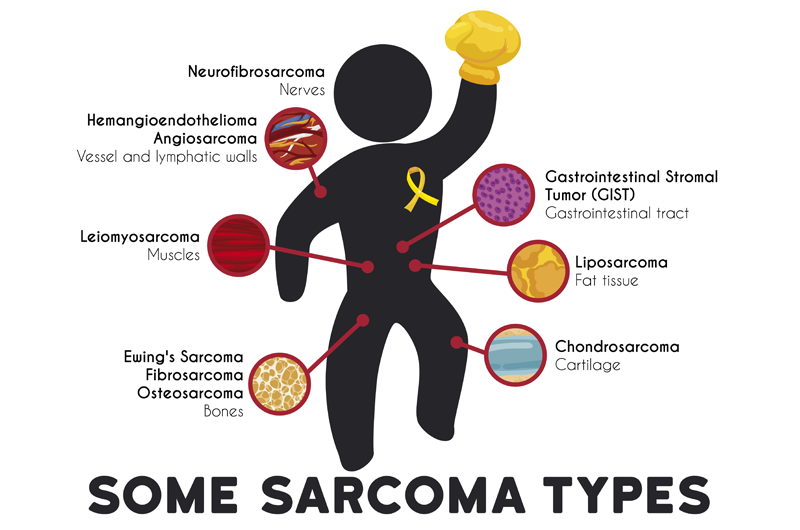A diverse family of rare cancers, sarcomas can develop in connective tissues and affect virtually any part of the body. Sarcomas grow in connective tissue – cells that connect or support other kinds of tissue in your body. As different types of sarcomas exist, the diagnosis, treatment, research and policy-making surrounding them is challenging. Medical coding service for this particular condition requires better understanding of the existing codes and documentation/reimbursement guidelines. The study results presented at the 22nd Connective Tissue Oncology Society (CTOS) 2017 Annual Meeting found that ICD-9/ICD-10 coding is inaccurate for many sarcoma cases, affecting the accuracy of the National Cancer Data Base, National Inpatient Sample and other national databases. This meeting highlighted advances in sarcoma research and also featured symposia on basic science; medical, pediatric and young adult oncology; and new research technologies.
Sarcomas are often coded by tumor location rather than type of malignancy. To prove that inaccurate coding can have an impact on the accuracy of national databases, researchers determined the variation in coding by comparing operative diagnostic codes – ICD-9 or ICD-10 – and tumor registrar diagnosis codes, ICD-O-3, for each to determine. They evaluated coding practices to identify errors at a single high-volume sarcoma center.
Sarcoma diagnoses were confirmed from operative pathology reports. Of the total 2,715 individual soft tissue and bone oncologic surgeries performed between 2012 and 2016, 1,237 had a histologic diagnosis of sarcoma with pathology confirmation.
Of these cases,
- Only 63% (n = 764) appeared accurately coded as sarcoma resections based on ICD-9/ICD-10 codes
- 16% (n = 180) were coded as a non-oncologic diagnosis, and
- 22% (n = 260) were coded by the organ, such as gastrointestinal, breast, hematologic, gynecologic, thoracic, cutaneous or “other” cancers
It was found that 72% of orthopedic oncology cases and 57% of surgical oncology sarcoma cases were accurately coded.
While evaluating ICD-O-3 codes, they found that
- 631 of 1,054 patients (60%) had accurate coding
- 26 (2%) were coded as “other cancer,” and
- 397 (38%) were not included on the tumor registry
- 46% percent of gastrointestinal stromal tumors and 72% of breast angiosarcomas also were coded incorrectly
According to the lead author of the study, “Potential solutions include multidisciplinary discussions to create recommendations for future ICD-9 or ICD-10 coding, and we want to streamline the sarcoma coding process at institutions as well.”
Inaccurate medical coding can mislead insurance companies regarding the patient’s condition and treatment provided, resulting in reimbursement issues for providers. Error-free reports can be created either with outsourced medical billing or by training hospital staff on the correct coding regulations.




